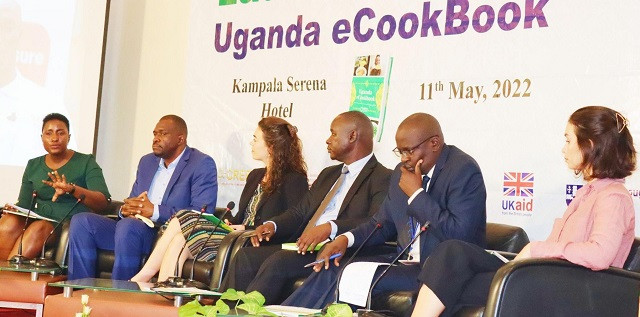KAMPALA, UGANDA: The Ministry of Energy under the electricity scale-up project financed by the World Bank will provide 72 billion Shillings to finance clean cooking solutions targeting 353,000 households of about 1.66 million people across the country.
Pauline Irene Batebe, the Permanent Secretary in the ministry says that a total investment of about US$20M which will come from both the public and private sector has been set aside for this fund to enable the public to access upfront capital for clean cooking solutions.
Batebe explains that the fund will also offer working capital to clean cooking service providers, who include manufacturers and distributors of clean cooking solutions; a grant facility in form of technical assistance to clean cooking service providers.
This will cover training technology, business development support, marketing support and awareness creation; and a subsidy scheme to buy down the upfront cost of clean cooking solutions.
Agnes Naluwagga, the head of Bio-energy at the Centre for Research in Energy and Energy Conservation said modern energy cooking services are aimed at transiting households from solid biomass fuels.
Dr. David Bilimumaso, a resident of Kampala says his family has already adopted the technology, and that his experience in using an Electric Pressure Cooker-EPC has notably helped him to save on time and cost compared to charcoal.
But Carolyn Aguti, from Soroti observed that the EPC technology may be a barrier to cultural practices and traditional food cooking styles like mingling millet, and roasting of meat.
Patrick Tutembe, an official from the Electricity Regulatory Authority-ERA observed that the technology is affordable and that manufacturers only need comprehensive advocacy to enable the population embrace it.
The Uganda Revenue Authority-URA has provided incentives for clean cooking of 0% duty remission on inputs used in the manufacture of energy-saving stoves; tax exemption for plastic bag biogas digesters, and excise duty for denatured ethanol for cooking; and waived VAT for ethanol produced from cassava.
In December 2021, government introduced a cooking tariff to make the cost of cooking with electricity lower in homes. The new cooking tariff enables a consumer to pay 412 Shillings for each unit of electricity in the threshold approved by the Electricity Regulatory Authority-REA.
The ministry said it is working very closely with the Uganda National Bureau of Standards-UNBS to develop standards for Electric Pressure Cookers-EPCs, and establish a certification program for manufacturers, distributors as well as electricians involved in the repair and maintenance.
On Wednesday this week, the ministry backed by Modern Energy Services – MECs, and the Centre for Research in Energy and Energy Conservation-CREEC, launched Uganda eCooBook, to promote energy-efficient cooking devices.
The guide provides insight into the role that energy-efficient cooking devices can play in Uganda’s energy future, with a specific focus on the Electric Pressure Cookers – EPCs. the eCookBook illustrates how energy relates to money and time to enable household to understand how to save by using smarter cooking techniques.
Uganda’s energy sector is characterized by the heavy reliance on solid biomass fuels in the form of firewood and charcoal – which contributes over 89% of total consumable energy in the country.
Dr. Gerard Banaga, the Assistant Commissioner in charge of Technical Planning in the Ministry of Energy pointed out that nearly 100,000 – 200,000 hectares of forestland are being destroyed per annum, setting dangerous precedence of environmental destruction.
Firewood and charcoal are the key cooking energy sources in urban centers and developing towns, and are responsible for more than 18,000 deaths globally per annum due to emissions, especially with the traditional inefficient technologies.
In Uganda, charcoal demand is increasing in tandem with the population and urbanization rate and is now standing at about 1.8 million tons per annum, which is an average of 18 million tons of fresh wood.
If you would like your article/opinion to be published on Uganda’s most authoritative news platform, send your submission on: [email protected]. You can also follow DailyExpress on WhatsApp and on Twitter (X) for realtime updates.



